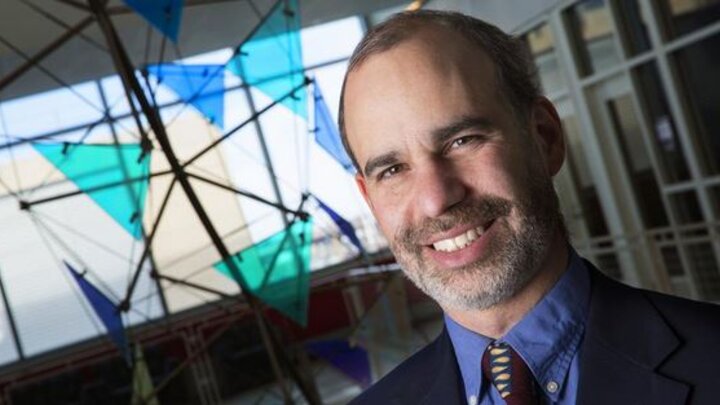Ken Bloom, associate professor of physics and astronomy, has been appointed the software and computing manager for the United States Compact Muon Solenoid operations program.
The Compact Muon Solenoid is an experiment at the Large Hadron Collider, the world’s largest proton collider. The experiment involves 4,300 particle physicists, engineers, technicians, students and support staff from 179 universities and institutes in 41 countries. The experiment, along with the complementary ATLAS experiment, gained international attention for its discovery of the Higgs boson in 2012.
UNL has collaborated on the experiment since 1993, under the leadership of five faculty members in the Department of Physics and Astronomy: Bloom, Dan Claes, Aaron Dominguez, Ilya Kravchenko and Greg Snow.
The U.S. CMS operations program is responsible for United States contributions to the commissioning, operation and maintenance of the CMS detector and contributions to the CMS software and computing infrastructure — all of the elements of the experiment that make the analysis of LHC data possible.
In his new role, Bloom oversees an annual budget of $18 million, which supports 60 full-time equivalent staff members and funds computing hardware at Fermilab, the Department of Energy Office of Science laboratory in Batavia, Illinois, and seven “Tier-2” computing sites at universities nationwide. UNL has hosted one of these sites since 2005.
Bloom has served as software and computing deputy manager since 2010, and leader of the Tier-2 program since 2005. To help fulfill the new responsibilities, Bloom has accepted a guest scientist appointment at Fermilab.




